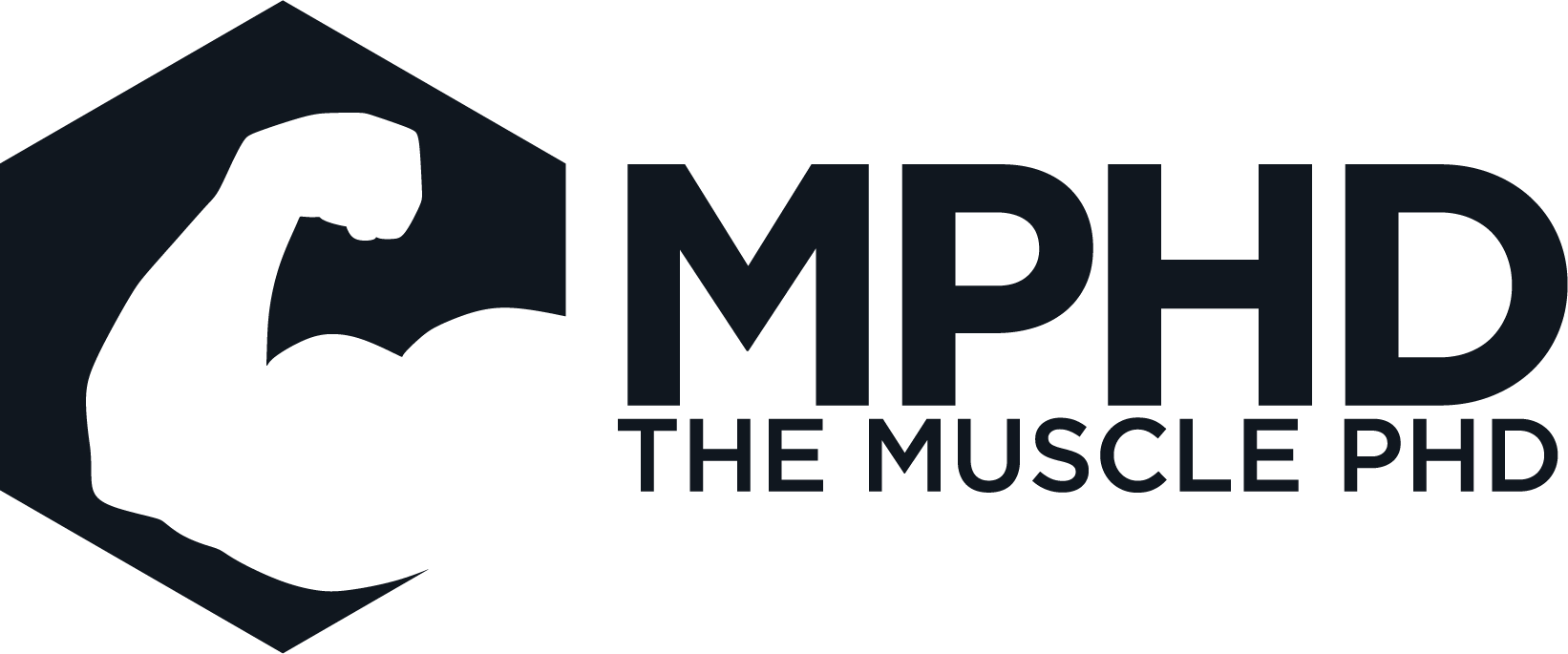Introduction
Venerable automobile magazine, Car and Driver, used to run a section at the end of each issue titled, “What I’d do Differently.” In this segment, public figures of the automotive or racing industries would undergo a quick interview in which they discussed how they conducted themselves in business or racing and how they might have done things differently if they had another chance. This was often an interesting piece when automotive icons, such as Lee Iacocca, were interviewed. This allowed us readers to get a rare glimpse into the acknowledged failures of a successful product developer. Mr. Iacocca clearly has many victories in the automotive field, including the Original Ford Mustang and Lamborghini Diablo, to name a few. However, Lee also helped develop the Ford Pinto which had a rather, ahem, explosive reputation. Needless to say, even the best of the best might have done things differently if they had a second go-round.
With the usefulness of this campaign in mind, I reached out to some fellow coaches and friends in the field and asked them a simple question: “If you could start over with training, what would you do differently?” At minimum, each person here has at least 10-years of experience in the iron game and most have at least a master’s degree in an exercise or nutrition-related field. Yeah, I’ve got cool friends. In each section below, we’ll have a “background,” and a, “What I’d do Differently,” subsection to give a better idea of everyone’s track and where they might have gone awry. And yes, the names have been altered so the crazy internet stalkers don’t go looking for my pals.
Answer 1: Bugs Bunny
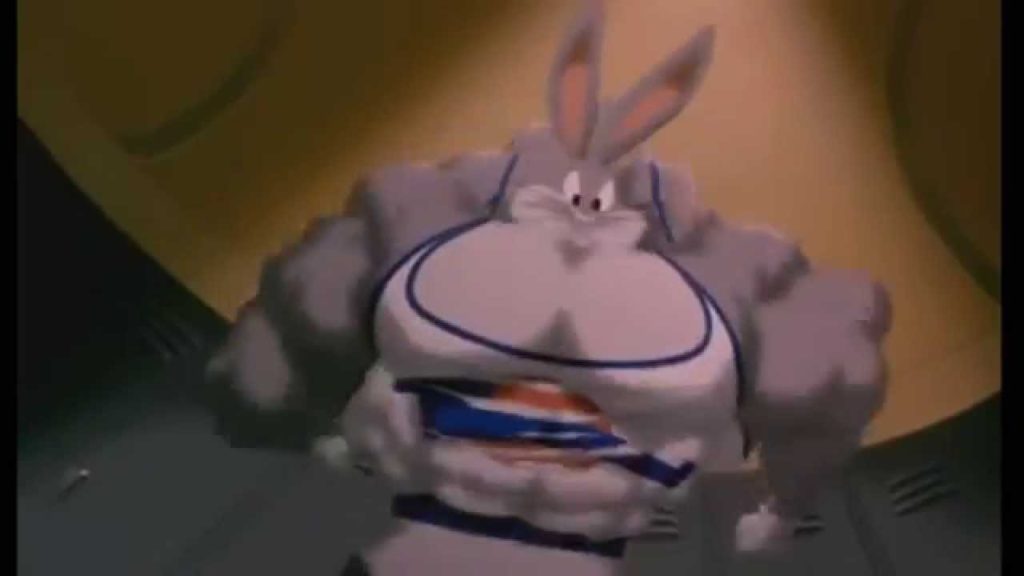 Background: This fellow is a good friend of mine from grad school who is now a strength and conditioning coach at a Division 1 university. Bugs has a background in sports throughout his life – namely wrestling – but also started competing in Olympic weightlifting in college. Bugs uses his weightlifting expertise and master’s degree in kinesiology to design training programs for athletes competing at extremely high levels. Really, Bugs is probably one of the few strength and conditioning coaches whom I would truly trust recommending anyone to for coaching.
Background: This fellow is a good friend of mine from grad school who is now a strength and conditioning coach at a Division 1 university. Bugs has a background in sports throughout his life – namely wrestling – but also started competing in Olympic weightlifting in college. Bugs uses his weightlifting expertise and master’s degree in kinesiology to design training programs for athletes competing at extremely high levels. Really, Bugs is probably one of the few strength and conditioning coaches whom I would truly trust recommending anyone to for coaching.
What I’d do Differently: “I didn’t really get into training until about college. Nowadays, you have sport performance gyms at every corner where youth athletes can get decent training for a reasonable price. When we were growing up, that wasn’t a thing [in the sticks of Indiana]. However, even in those days, we were starting to see websites pop up with a ton of free information regarding training [Dr. Wilson’s abcbodybuilding and Dave Tate’s EliteFTS were both around at this time plus many other forums]. I really wish I would have spent some time learning more about training at a younger age. When I got to college, I didn’t spend any time with training wheels on; I just went straight for the heavy weights and crushed myself. Since I was mostly interested in Olympic weightlifting, I worked on my mobility a lot and didn’t experience any serious injuries. However, it took me a solid couple of years to perfect my form since I didn’t spend as much time learning them as I should have.”
“If I could do things differently, I would have spent more time reading and watching the pros do it first. We now even have YouTube, which has years of coaching and training content and people can even watch full seminars and conferences for FREE. There’s no excuse to be behind when it comes to knowledge these days. Take at least 30-minutes every day and dedicate it to learning something new. Once you learn it, APPLY it!”
Answer 2: Eric Cartman
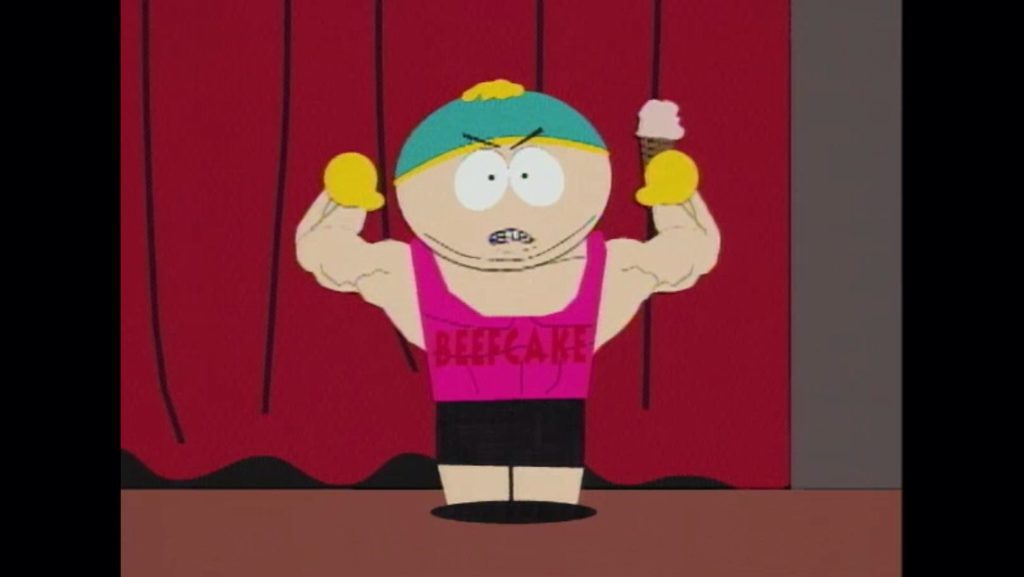 Background: Eric’s a former training partner of mine when we were “hardcore” competing in powerlifting. I put hardcore in quotes as we were hardcore lifters in every sense of the word, but in the grand scheme of the world, how “hardcore” is lifting? All philosophizing aside, every breath we took was dedicated to powerlifting. We’d train for 2-3 hours at a time and would follow up each training session with delicacies like Steak n’ Shake or Panda Express. When it came to food, our only concern was calories per dollar. Anywho, Eric was a solid lifter, with a total creeping close to 1600-lbs in the 198lb weight class. Eric stopped competing around the age of 24 due to burnout, so he never really achieved his full potential. I have no doubt he could have been an 800lb deadlifter; he had the perfect proportions for deadlifting a house.
Background: Eric’s a former training partner of mine when we were “hardcore” competing in powerlifting. I put hardcore in quotes as we were hardcore lifters in every sense of the word, but in the grand scheme of the world, how “hardcore” is lifting? All philosophizing aside, every breath we took was dedicated to powerlifting. We’d train for 2-3 hours at a time and would follow up each training session with delicacies like Steak n’ Shake or Panda Express. When it came to food, our only concern was calories per dollar. Anywho, Eric was a solid lifter, with a total creeping close to 1600-lbs in the 198lb weight class. Eric stopped competing around the age of 24 due to burnout, so he never really achieved his full potential. I have no doubt he could have been an 800lb deadlifter; he had the perfect proportions for deadlifting a house.
What I’d do Differently: “Well, I started training with you [me] when we were probably 20-21 and, really, I wasn’t ready for that level of training. I needed a little more time learning the lifts, but you helped get me strong pretty fast. Once I got into powerlifting, I really fell prey to the classic Dave Tate bulking plan where I was eating absolute garbage every single day, trying to push the limits of my bodyweight. I got into the low 200s at 5’8” (Eric started around 165…), but my cardio was seriously suffering; I could barely walk up the stairs. I’m pretty sure my lack of cardio made it harder to recover – we’d squat on Monday and I’d be sore and stiff until Friday. Then, before you know it, we both had to take about 45-mins to get a decent warmup in. Some days, we’d do our 45-min warmup just to find out that our bodies didn’t have it that day.”
“If I could do things differently, I do think I would have added some cardio in. Even cool cardio, like sled pushes and yoke carries and stuff like that. Just something to get a little better work capacity and recoverability. Then our training sessions probably wouldn’t have lasted 3-hours. I probably also wouldn’t have eaten like a complete asshole, but Nabisco kept coming out with new Oreos flavors every month, so I couldn’t really resist. Ultimately, we would have both been better off if we had played the long game and had 5-year goals, rather than 5-day goals.”
Answer 3: Ned Flanders
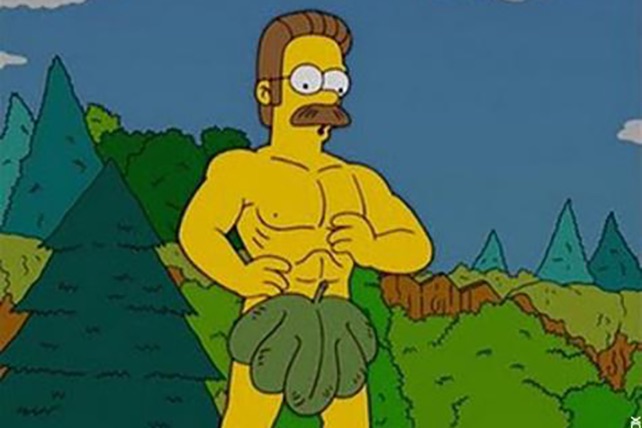 Background: Ned is one of my closest friends and is also a former physique competitor. He made it to the NQ (nationally qualified) ranks in the NPC but stopped competing once he got married and started a family. Ned really is a human cheat code – tall, handsome, shredded, and has a great job. No wonder his wife locked him down! I trained with Ned throughout college; he was always focused on shredding while I was focused on getting stronger. To this end, we tried to start our own supplement company (“Aesthetic Power Nutrition” LOL) through buying bulk ingredients on Amazon and mixing them up ourselves. We never got our preworkout to taste right, but the pump was on a different level. We’d sell the pre-workout (a white powder) in sandwich baggies to our lifting friends on campus – I have no idea how we never got arrested for that.
Background: Ned is one of my closest friends and is also a former physique competitor. He made it to the NQ (nationally qualified) ranks in the NPC but stopped competing once he got married and started a family. Ned really is a human cheat code – tall, handsome, shredded, and has a great job. No wonder his wife locked him down! I trained with Ned throughout college; he was always focused on shredding while I was focused on getting stronger. To this end, we tried to start our own supplement company (“Aesthetic Power Nutrition” LOL) through buying bulk ingredients on Amazon and mixing them up ourselves. We never got our preworkout to taste right, but the pump was on a different level. We’d sell the pre-workout (a white powder) in sandwich baggies to our lifting friends on campus – I have no idea how we never got arrested for that.
What I’d do Differently: “Really, the biggest thing I could never get straight was some sort of balance between training and life. Especially as a physique competitor, dieting can really interfere with the rest of your life. You have a much shorter temper, no energy to do anything, and it’s hard to be social when you can’t eat or drink like everyone else. Once I got married and had kids, my priorities appropriately shifted to my family and I haven’t spent nearly as much time at the gym. I do think I could have eventually gotten my pro card, but I was to the point in my training age where it was going to be really tough to build enough muscle to win the national level shows and I would have had to dedicate so much time to that lifestyle. I would never be satisfied with a second-place showing at a contest, so bodybuilding was definitely an all-or-nothing mindset for me.”
“If I could do things differently, I would have done my best to figure out some sort of work, life, and bodybuilding balance where I could get the most out of all three and not feel like I’m missing out on something. This might have required investing in a home gym, subscribing to a meal prep plan, or something along those lines that would have helped reduce my time commitment to bodybuilding. I will never regret making time for my wife or kids, but it would have been interesting to see if I could have kept my training up and maybe played the long game a little better.”
Answer 4: Skeletor
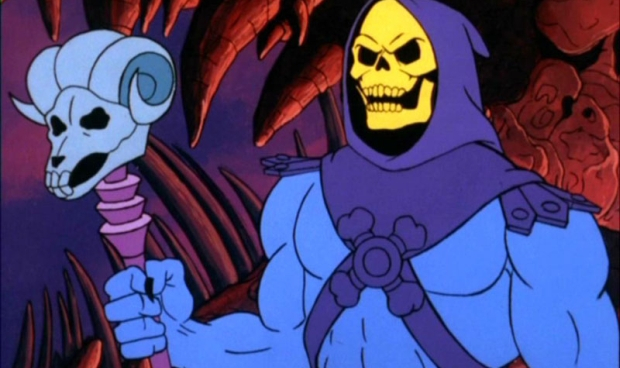 Background: Skeletor is another friend from my grad school days who now works as a strength and conditioning coach at a small Division 1 university. Skelly dabbles in just about every strength sport – powerlifting, bodybuilding, Olympic lifting, strongman, and even some plyometric/calisthenic work. Regardless of his lack of focus on a specific strength sport, Skelly is one of the few people that can outeat me, but he also maintains a pretty lean physique year-round. He’s a lucky duck and an excellent strength coach with a diverse background in many different sports and athlete levels.
Background: Skeletor is another friend from my grad school days who now works as a strength and conditioning coach at a small Division 1 university. Skelly dabbles in just about every strength sport – powerlifting, bodybuilding, Olympic lifting, strongman, and even some plyometric/calisthenic work. Regardless of his lack of focus on a specific strength sport, Skelly is one of the few people that can outeat me, but he also maintains a pretty lean physique year-round. He’s a lucky duck and an excellent strength coach with a diverse background in many different sports and athlete levels.
What I’d do Differently: “I know most are probably taking this as a training question, but I think I’m going to go a different route and offer some insight on the fitness and coaching industry. I really don’t have many training regrets; I’ve always been patient with progress. If anything, I need to train harder! However, I struggled to get a good job following completion of my undergrad degree. I bounced around from internship to internship all over the country but could never get a full-time gig. That’s what drove me back to grad school so I could try and stand out on job applications.”
“If I could go back, I would have spent more time networking with others in the field and trying to make as many connections as possible. Strength and conditioning [or fitness in general] really is a, “who you know,” rather than a, “what you know,” kind of industry. If your application pops up on the director’s desk next to someone [s]he knows, yours is going in the trash. In your early years in the field, you’re going to have to sell yourself to everyone you can find – you’ll feel like you’re being annoying, but it’s something you have to do if you want options when it’s time to find a job. Plus, this gives you a unique advantage if you ever find yourself in a head S&C or director job. You’ll have no problem filling out your staff if your phone is full of solid contacts. No matter how much you feel like you’re bugging someone, always know that the director or head coach you’re talking to was once in your shoes, too. You’ll have a hard time finding a strength coach that isn’t willing to spend some time and talk shop with you.”
Answer 5: Hank Hill
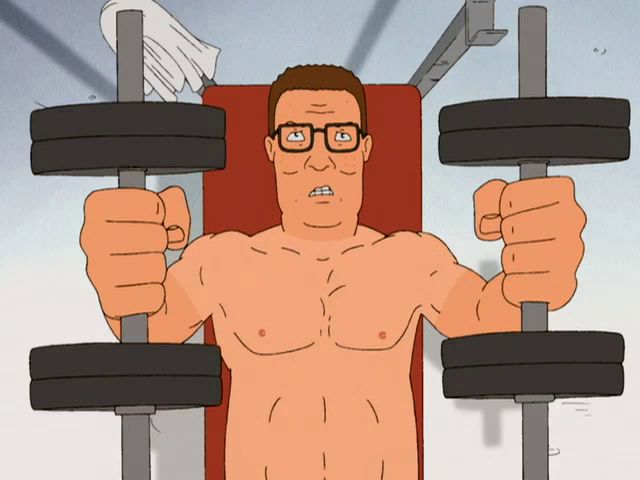 Background: I first met Hank Hill during my undergrad internship. We then went to the same grad school program, so we’ve been pals for a handful of years. Hank has the perfect build for strength sports – right about 6-feet tall and thick, burly joints. Hank dabbles in both powerlifting and strongman but is also quite competent with Olympic weightlifting movements – something most powerlifters cannot claim. Hank is currently a high school strength and conditioning coach – his students are incredibly lucky to have an actual strength coach, let alone a solid one who genuinely cares about his athlete’s health like Hank.
Background: I first met Hank Hill during my undergrad internship. We then went to the same grad school program, so we’ve been pals for a handful of years. Hank has the perfect build for strength sports – right about 6-feet tall and thick, burly joints. Hank dabbles in both powerlifting and strongman but is also quite competent with Olympic weightlifting movements – something most powerlifters cannot claim. Hank is currently a high school strength and conditioning coach – his students are incredibly lucky to have an actual strength coach, let alone a solid one who genuinely cares about his athlete’s health like Hank.
What I’d do Differently: “I played just about every sport growing up and eventually focused on football and wrestling in high school. I ended up tearing my ACL while playing football which pretty much ruined any future athletic aspirations for me. ACL rehab has gotten a lot better these days, but 15-years ago, it was a death sentence for your career unless you had a top-notch surgeon and rehab team. Anyways, I went to college for an exercise science degree and really got into working out. The problem was that I never really cared to properly rehab my knee following my pitiful physical therapy program. Therefore, my squat form was trash for a long time, and I was constantly dealing with knee pain.”
“If I could do things differently, I would have taken the time to properly rehab my knee and would have focused on training the distal quad and hamstrings to ensure better knee stabilization. My injury happened when I was 18, and I didn’t really do anything specific for it until I was 22. That’s 4-years wasted, and an incredibly important 4-years when it comes to optimum gains as that’s the perfect age range to make a ton of progress. I would bet that a lot of people get into strength sports following competing in other sports, and they probably all have some sort of nagging injury from their playing days. Make sure you take the time to fix that injury instead of just blasting through it. Your long-term progress will thank you.”
Answer 6: Yours Truly
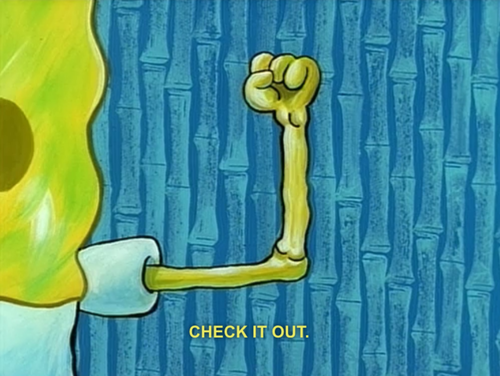 Background: Before you go accusing me of only having 5 friends, A) that’s mostly accurate and, B) I didn’t receive a prompt enough response from the others and didn’t feel like waiting any longer. So, here we are. You’re stuck with me. Anyways, let’s skip this boring part and move to the important stuff.
Background: Before you go accusing me of only having 5 friends, A) that’s mostly accurate and, B) I didn’t receive a prompt enough response from the others and didn’t feel like waiting any longer. So, here we are. You’re stuck with me. Anyways, let’s skip this boring part and move to the important stuff.
What I’d do Differently: I think Eric Cartman summed my problem up pretty well – I had five-day goals, rather than five-year goals when I was in the thick of training my hardest. I was breaking into the elite ranks in the 198lb weight class but had my eyes set on competing in the 220/242lb class with the likes of Dan Green and Kevin Okolie. I never once stopped to ponder that my goals were a solid 5-10 years away; I wanted to be on the platform with those guys in 6-months. I never took a deload and constantly ate myself to the point of nausea trying to get as big as possible. I remember having so much knee pain that I had to crawl up the stairs in my apartment complex after a squat workout.
This attitude towards training culminated in me having a laundry list of injuries, including a torn patella tendon and a torn pec that pretty much ended my powerlifting dreams on the spot. If I had better managed my training loads and had taken better care of my body, it’s very possible that I’d be at the world class level by now. The world may never know…
So, what would I have done differently? Train smarter, not harder. I’m sure about half of the people reading this are in a similar boat. Despite how many motivational posters your school or office has, you don’t have to outwork everyone every single day. It’s perfectly okay to pump the brakes occasionally and give your body a chance to heal. Always listen to your body; my body was telling me for months that my knee was about to give out. But I wouldn’t waiver from my training plan as I had the Arnold Classic coming up and wanted to crush it. Crush or be crushed – look how that worked out.
Final Thoughts
I’m sure you’ve uncovered a pretty common theme from our “panel” in this piece. Hardcore training sessions are the ones that get the most attention and glory on social media, but it’s the less intense sessions that no one sees that probably make the biggest difference in your long-term progress. Take the time to learn about training and your body as well as your aches and pains. Give up the bro persona and do an iota of cardio on occasion. Learn to balance your training goals with your lifestyle, especially if you want training to last. If you want to work in the field, get out of your shell and network with as many people as possible. No decent trainer or strength coach will refuse to give you the time of day, I promise you.
Take this concept into your own life or field of work. In what ways are you an expert on something? What do you wish you could go back and tell yourself when you first got into your topic of expertise? No matter how far you are into your training journey, it’s always worth taking a step back to gather some perspective. Speaking with gym veterans is one of the best ways to learn as scientific journals really don’t have the answers for successfully implementing long-term (greater than 5-10 years) training programs.
We hope this piece offered some unique insight on long term training and we’ll most likely do a follow-up with a different panel of respondents (once I get more friends) to gather even more perspectives.
From being a mediocre athlete, to professional powerlifter and strength coach, and now to researcher and writer, Charlie combines education and experience in the effort to help Bridge the Gap Between Science and Application. Charlie performs double duty by being the Content Manager for The Muscle PhD as well as the Director of Human Performance at the Applied Science and Performance Institute in Tampa, FL. To appease the nerds, Charlie is a PhD candidate in Human Performance with a master’s degree in Kinesiology and a bachelor’s degree in Exercise Science. For more alphabet soup, Charlie is also a Certified Strength and Conditioning Specialist (CSCS), an ACSM-certified Exercise Physiologist (ACSM-EP), and a USA Weightlifting-certified performance coach (USAW).
